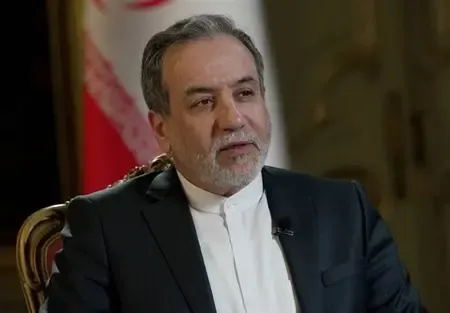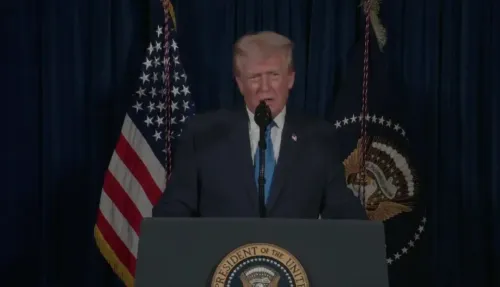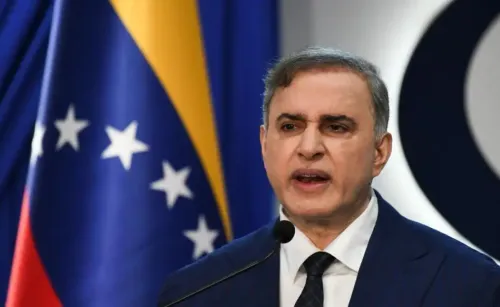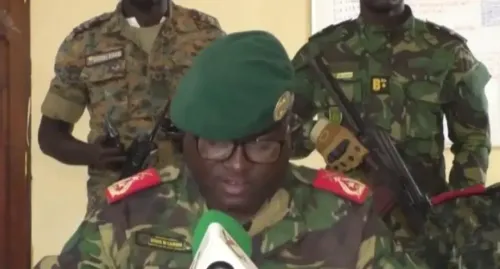What Are the Recent Caucasus Developments Discussed by Iran's FM with Russian and Armenian Diplomats?

Synopsis
Key Takeaways
- Iran emphasizes peace between Armenia and Azerbaijan.
- Regional mechanisms are crucial for addressing issues.
- Transit routes must respect sovereignty and integrity.
- Collaboration between Iran and Russia is vital for stability.
- Recent peace agreement aims to resolve longstanding conflicts.
Tehran, Aug 14 (NationPress) Iran's Foreign Minister Seyed Abbas Araghchi engaged in discussions regarding the recent developments in the Caucasus with prominent Russian and Armenian diplomats.
In two distinct meetings with Igor Khovaev, Russia's special envoy for normalizing relations between Armenia and Azerbaijan, and Vahan Kostanyan, Armenia's deputy foreign minister, Araghchi also addressed bilateral relations with both nations, as per reports from the Iranian Foreign Ministry.
During these discussions, Araghchi emphasized Iran's steadfast position in favoring the establishment of peace between Armenia and Azerbaijan. He underscored the importance of peacefully addressing regional challenges through the initiatives of the regional countries without foreign interference.
While conversing with Khovaev, he advocated for leveraging regional frameworks to tackle issues, enhancing collaboration and unity in the region, and ensuring the security and collective interests of the nations within the Caucasus.
Araghchi noted the alignment of Iran and Russia on various significant regional and international matters, indicating the necessity to perpetuate and enhance bilateral consultations and partnerships to protect their mutual interests.
In response, the Russian diplomat provided an overview of his country's diplomatic initiatives aimed at fostering peace and stability in the Caucasus, stressing the need for continuous and close coordination between Russia and Iran, as reported by Xinhua News Agency.
In his dialogue with the Armenian deputy foreign minister, Araghchi reiterated that the unblocking of transit routes in the region should respect the national sovereignty and territorial integrity of regional countries and take into account their interests.
He stated that no initiative to unblock transit routes should result in geopolitical shifts in the region or disrupt the connectivity between other nations, asserting that all regional states would gain from any peace agreement.
Kostanyan briefed Araghchi on the latest occurrences in the South Caucasus, assuring him that Armenia views its relations with Iran as strategic and remains committed to regional stability, considering Iran’s security and geopolitical concerns when deciding on any agreements regarding peace, security, and transit routes in the Caucasus.
Armenia and Azerbaijan have been in conflict over the Nagorno-Karabakh region since 1988 and have engaged in peace negotiations since 1994, when a ceasefire was established, despite ongoing sporadic clashes.
Recently, the leaders of both countries witnessed the initialing of a peace agreement at the White House, marking an end to their long-standing border conflict, with further steps to be undertaken to finalize and ratify the agreement.
This agreement includes provisions granting the United States exclusive rights to create and manage a significant transit corridor across southern Armenia, directly linking Azerbaijan to its exclave of Nakhchivan and eventually to Turkey.









